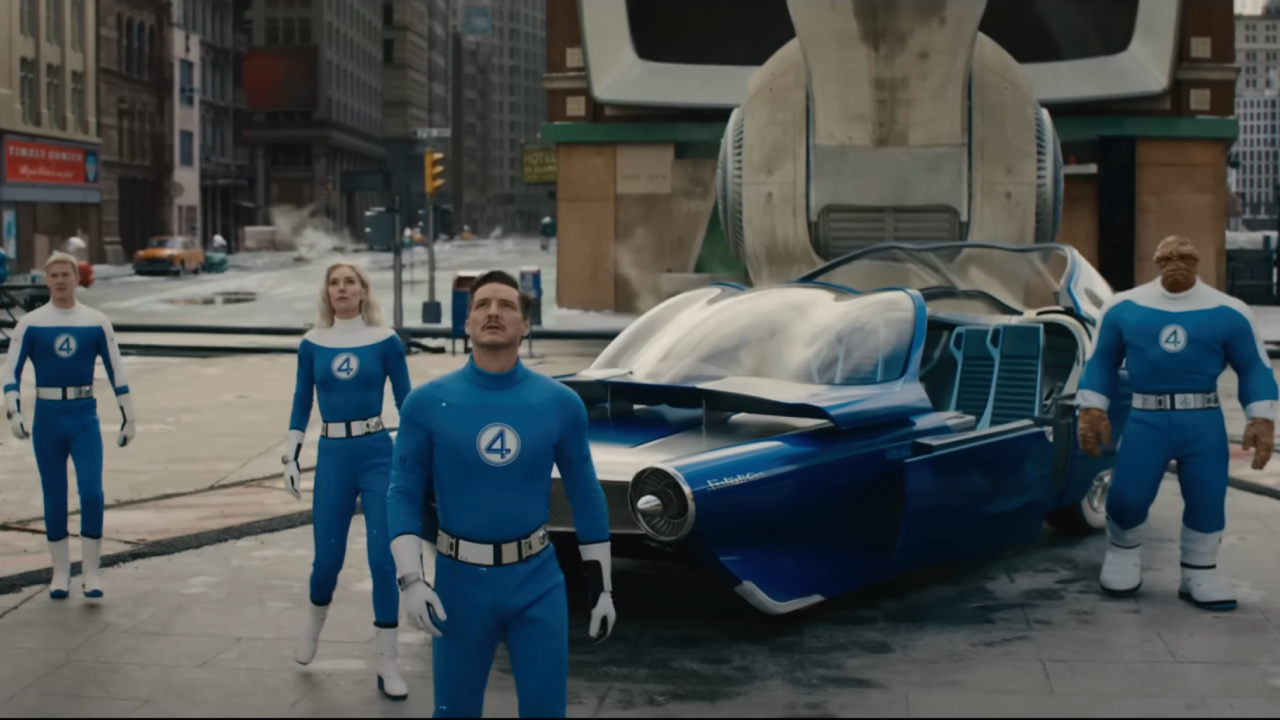The release of Fantastic Four: First Steps has prompted a significant shift in how audiences perceive the Marvel Cinematic Universe (MCU) and its ongoing Multiverse Saga. Initially, many fans, including myself, viewed the Multiverse Saga with skepticism, anticipating its conclusion with films like Avengers: Doomsday and Avengers: Secret Wars not out of excitement, but rather a desire for the franchise to move beyond what seemed a convoluted narrative arc.
The Multiverse concept, while a popular theme in comic books, has often struggled to deliver compelling stories within the cinematic context. The narrative direction taken post-Avengers: Endgame left many fans feeling disconnected, as the Multiverse became more of a tool for resolving continuity issues than a narrative vehicle for engaging storytelling. Yet, the arrival of Fantastic Four: First Steps has sparked renewed interest in this expansive universe.
Redefining the Multiverse
The underwhelming reception of previous Multiverse-related films led to a growing sentiment that the MCU had not effectively utilized this complex narrative structure. Instead of delivering interconnected stories, many films felt disjointed and lacked the depth that characterized earlier installments. This was particularly true as news emerged that Avengers: Secret Wars might serve as a reboot for the MCU, raising concerns that the Multiverse Saga was merely a means to reset the franchise.
Despite these concerns, Fantastic Four: First Steps has managed to present a narrative that stands apart from previous entries in the MCU. Set in a self-contained universe, the film successfully embraces its retro-futuristic aesthetic while acknowledging the existence of the Multiverse without becoming bogged down in it. The film’s producer has hinted at the Fantastic Four’s eventual integration into the broader MCU, but its current narrative remains refreshingly independent.
What sets Fantastic Four: First Steps apart is its ability to deliver a satisfying story that resonates with audiences. Many viewers appreciate the film’s unique perspective, reminiscent of the storytelling style seen in the original Iron Man. This self-contained approach allows for character development and plot exploration without the constraints of interconnectivity that have plagued other films in the saga.
Potential for Future Stories
The question arises: why did Marvel wait until now to explore this avenue? If the Multiverse Saga had initially focused on standalone stories connected by the Multiverse, it could have fostered greater creativity and variation in superhero narratives. By showcasing different heroes and worlds, Marvel could have maintained audience interest while avoiding the pitfalls of formulaic storytelling.
Looking ahead, the upcoming Avengers: Secret Wars, scheduled for release in December 2027, holds the potential to redefine the Multiverse once more. Discussions among Marvel executives, including Kevin Feige, suggest that this film may not simply serve as an endpoint but could open doors to new beginnings within the franchise. If the narrative allows for unresolved multiversal elements, it could pave the way for a new phase of films set in diverse universes, enhancing the storytelling landscape.
As the MCU approaches the conclusion of its Multiverse Saga, fans are left contemplating the possibilities. If the Multiverse concept continues to exist, it may still offer opportunities for unique storytelling. The success of Fantastic Four: First Steps proves that there is still room for innovation within the franchise, and many hope to see more films that explore new ideas and settings within the Marvel universe.
In conclusion, while the Multiverse Saga has faced criticism, the recent success of Fantastic Four: First Steps may indicate a turning point for the MCU. With the potential for new narratives and a return to compelling storytelling, the franchise could emerge revitalized, ready to explore the limitless possibilities of the Marvel Multiverse.





































































